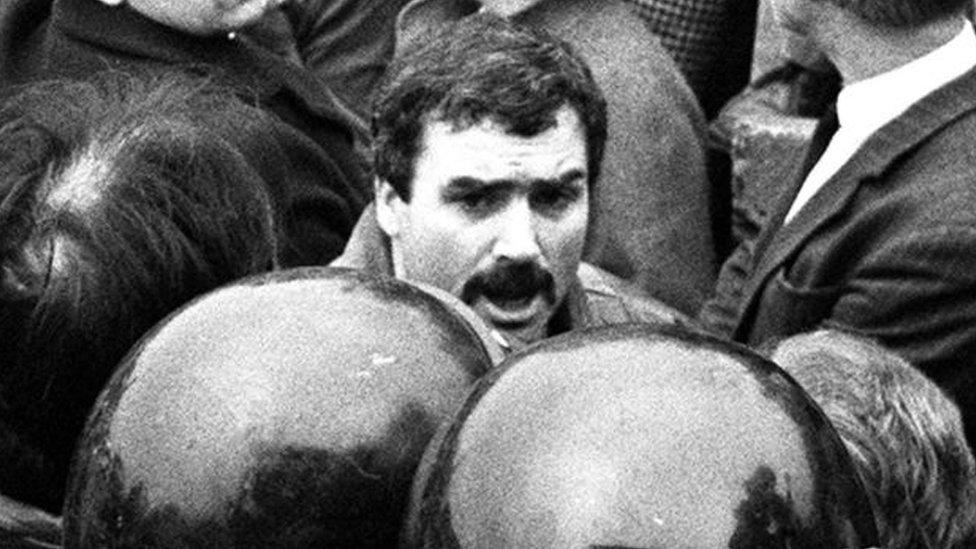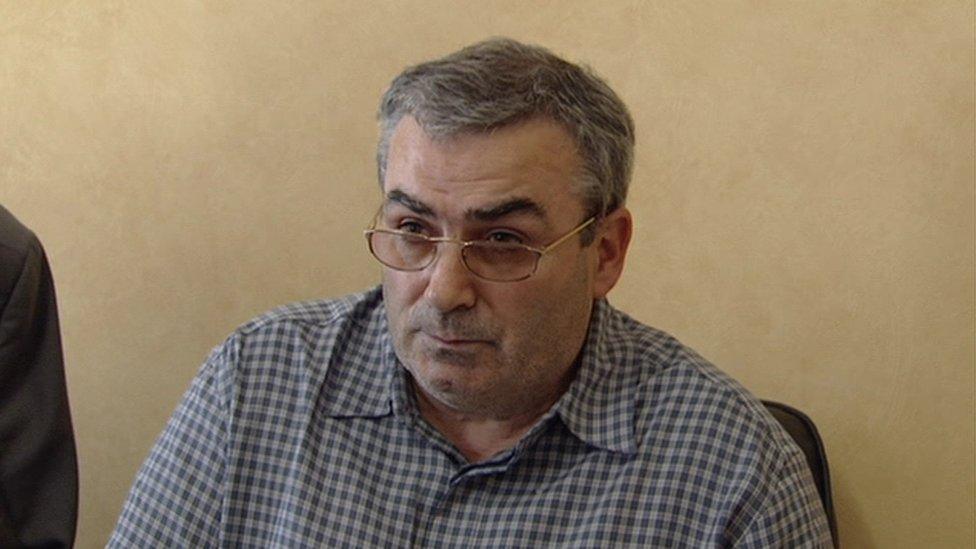Stakeknife: Alleged Army agent in IRA Freddie Scappaticci dies
- Published

Freddie Scappaticci always denied he was an Army agent within the IRA
Freddie Scappaticci, the man suspected of being Stakeknife, the Army's top agent within the IRA, has died.
Mr Scappaticci, who was in his 70s, always denied he was Stakeknife.
He left Northern Ireland in 2003 after media organisations alleged he had been working for the Army while head of the IRA's internal security unit.
Jon Boutcher, who is heading an investigation into Stakeknife's activities, said Mr Scappaticci died last week.
The IRA's internal security unit - known as "the nutting squad" - identified suspected informers, many of whom were murdered by the group after being kidnapped and tortured.
Mr Scappaticci, who formerly lived in west Belfast, was the grandson of an Italian immigrant who came to Northern Ireland in search of work.
In 2016, the Police Service of Northern Ireland commissioned an investigation into Stakeknife's activities led by Mr Boutcher, the former head of Bedfordshire police.
'Impact on report'
Mr Boutcher was in the process of preparing a report on his investigation, Operation Kenova.
The Operation Kenova team has investigated historical crimes, covering murder and torture, and the role of the state, including MI5.
Mr Boutcher said his team was "working through the implications" of Mr Scappaticci's death in consultation with stakeholders, including victims and bereaved families.
"The very nature of historical investigations will mean a higher likelihood that old age may catch up with those affected, be they perpetrators, witnesses, victims, family members or those who simply lived through those times, before matters are concluded," Mr Boucher said.

Mr Scappaticci left Northern Ireland when identified by the media as Stakeknife in 2003
He added that his team remained committed to "providing families with the truth of what happened to their loved ones" and pursuing criminal charges against several individuals.
The Operation Kenova report was due to be published earlier this year but has been delayed.
KRW Law, which represents some victims of the IRA's internal security unit, said the news of Mr Scappaticci's death would "frustrate many families" who had been waiting for the publication of the Operation Kenova report.
"Clearly the death will have an impact on both the content of the report and whether or not criminal prosecutions go ahead," they said.
Last week, Mr Boutcher said a key stage of the report had "taken longer than I had hoped".
The Public Prosecution Service (PPS) had about 30 files related to the Stakeknife investigation, awaiting decisions.
Mr Boutcher expressed hope that Mr Scappaticci's death would make more people comfortable to come forward and speak to his investigators.
Related topics
- Published6 April 2023

- Published11 April 2017

- Published1 October 2019

- Published29 October 2020
